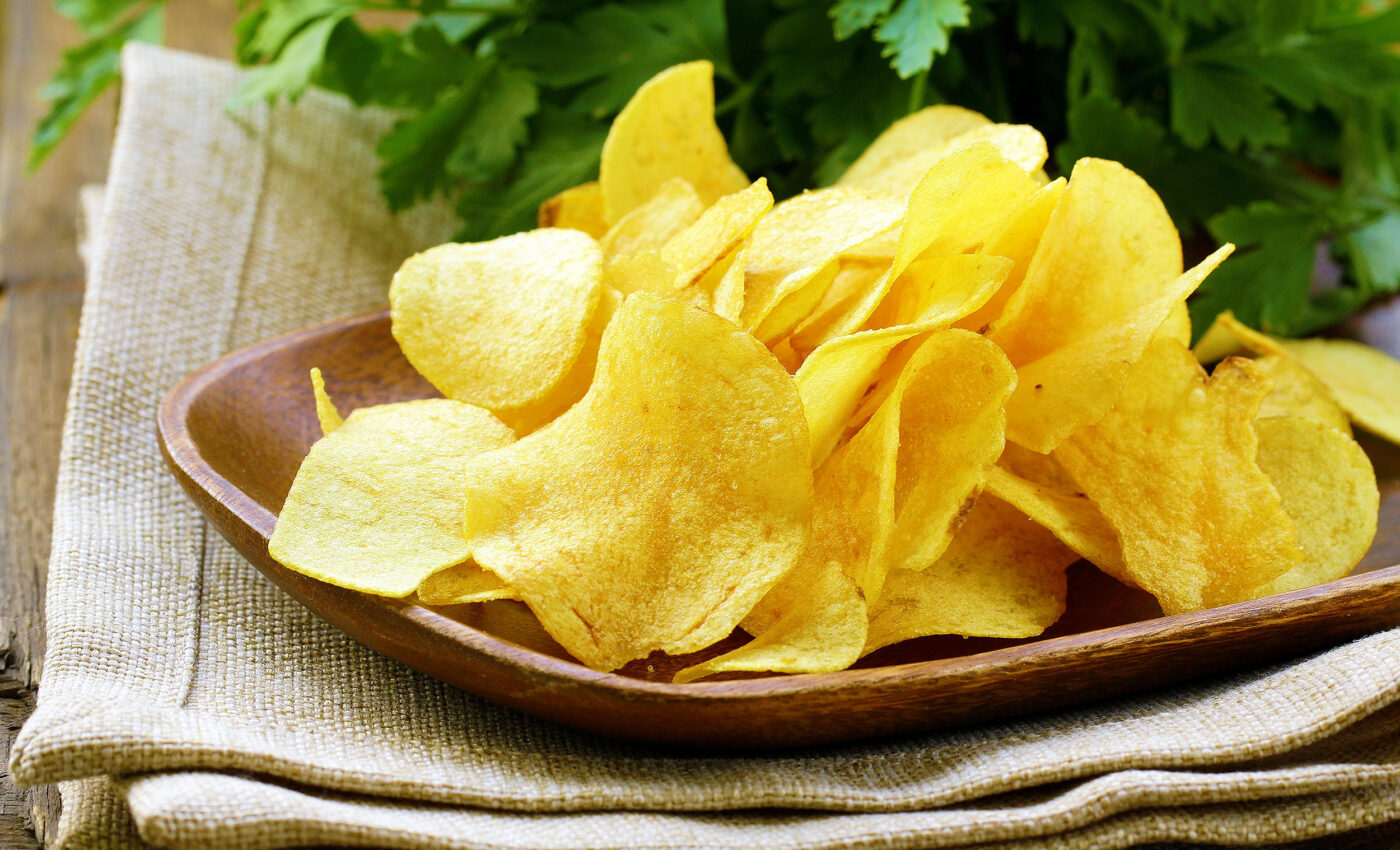
Potato chips and fries will now be a ‘healthy’ snack with new cooking method
In an exciting development for the snack food sector, two scientists discovered a way to make healthy potato chips and fries by reducing a carcinogen produced when cold-stored potatoes are fried.
The work of Michigan State University (MSU) professors Jiming Jiang and David Douches is set to revolutionize the potato chip industry by paving the way for the creation of healthy potato varieties resistant to these drawbacks.
From farm to bowl: Making a healthy potato chip
The significance of this research cannot be overstated, particularly when considering the snack industry’s multi-billion dollar market in the U.S. alone. Michigan stands as a leading potato producer for chips, contributing $240 million annually to the industry.
However, the inherent challenge of not being able to cultivate potatoes year-round, coupled with the necessity for snack manufacturers to have a continuous supply, has made cold storage of potatoes an essential yet problematic solution.
This is primarily due to cold-induced sweetening (CIS), a process where starches in potatoes convert to sugars at low temperatures, leading to darker chips and fries with higher levels of acrylamide — a carcinogenic compound formed during high-temperature cooking, linked to increased cancer risk.
While there are existing methods to reduce sugar content in cold-stored potatoes, these solutions can be costly and potentially alter the flavor of the final product.
Genetic road to healthier snacks
Addressing the issue at its core, Jiang and his team have identified the specific gene responsible for CIS and, crucially, the regulatory element that activates it under cold conditions.
This discovery deepens the understanding of CIS and opens the door to developing potato varieties that naturally resist this process, thus preventing the formation of harmful substances.
Jiang, a potato researcher for over two decades, has been at the forefront of this challenge, initially identifying a key gene linked to CIS during his tenure at the University of Wisconsin-Madison in 2010.
Collaborating extensively with MSU colleagues and other research institutions, Jiang’s team utilized gene expression analysis, protein identification, and enhancer mapping to pinpoint the CIS gene’s regulatory element.
“We’ve identified the specific gene responsible for CIS and, more importantly, we’ve uncovered the regulatory element that switches it on under cold temperatures,” explained Jiang.
“By studying how this gene turns on and off, we open up the possibility of developing potatoes that are naturally resistant to CIS and, therefore, will not produce toxic compounds.”
The dawn of cold-resistant potatoes
The MSU environment, renowned for its collaborative research atmosphere and state-of-the-art facilities, including the top-tier potato breeding program led by Douches, has been instrumental in advancing this research.
“MSU’s collaborative research environment and facilities, including the world-class potato breeding program led by Dave Douches, were instrumental for this research,” Jiang said.
“Our next steps involve using this knowledge to create CIS-resistant potato lines through gene editing or other breeding techniques in Dr. Douches’ greenhouses.”
Douches highlighted the efficiency of conducting research on-campus, allowing for swift progress towards creating cold-resistant potato varieties through targeted genetic modification.
“All our facilities are on campus so the research work can be done efficiently,” Douches said. “With our collaboration, we were able to produce a finding that paves the way for targeted genetic modification approaches to create cold-resistant potato varieties.”
Extending this technology beyond snack foods
The implications of Jiang and Douches’ research extend beyond making healthy potato chips and enhancing the quality of snack foods. It also holds the potential to mitigate acrylamide formation in various processed starchy foods.
Furthermore, developing cold-resistant potatoes could lead to improved storage and transport flexibility, reducing food waste and associated costs.
Jiang is optimistic about the commercial availability of CIS-resistant potatoes in the near future, marking a significant stride in improving potato development for food quality and health.
“This discovery represents a significant advancement in our understanding of potato development and its implications for food quality and health,” Jiang said. “It has the potential to affect every single bag of potato chips around the world.”
This advancement is poised to impact the global snack food industry, potentially transforming every bag of potato chips on the market.
Healthy potato chips and the cold spud revolution
In summary, this tantalizing discovery marks a significant milestone in the snack food industry and potato cultivation, promising a future where chips and fries not only taste better but are healthier too.
By pinpointing the gene responsible for cold-induced sweetening and its regulatory element, scientists can now create potato varieties resistant to this process, potentially eliminating the formation of acrylamide, a known carcinogen.
The collaboration between Michigan State University’s esteemed scientists and its world-class potato breeding program, led by David Douches, showcases the power of targeted genetic modification in addressing critical food safety and quality issues.
This breakthrough stands to transform the billion-dollar snack market in the U.S. while taking great strides in global food health standards. This collaboration is a pivotal moment for researchers, farmers, and consumers alike.
The full study was published in the journal The Plant Cell.
—–
Like what you read? Subscribe to our newsletter for engaging articles, exclusive content, and the latest updates.
—–
Check us out on EarthSnap, a free app brought to you by Eric Ralls and Earth.com.
—–













